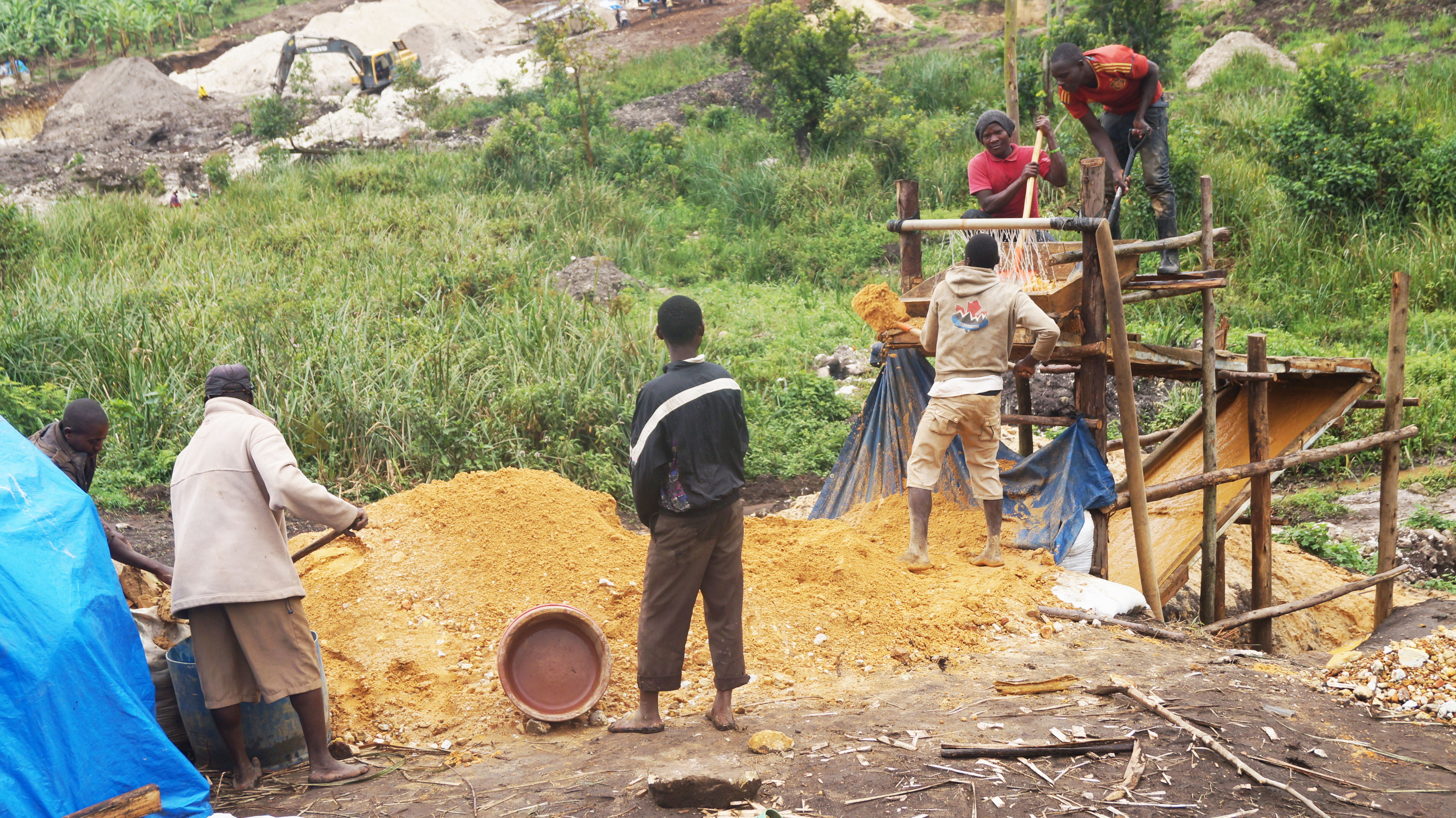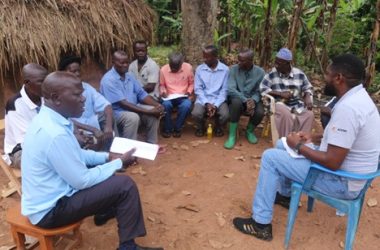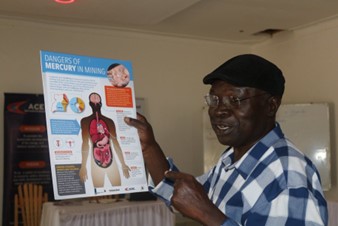“We are praying to God to end this disease so that we can continue with our business,” said Tanzanian miner Selamani Juma Salum.
Informal gold miners from South America to Africa are selling gold at almost 40% discounts as measures to curb the corona virus crimp supply routes and dry up funding.
Border restrictions and flight cancellations have created gold gluts in local markets, depressing prices for small-scale miners even as global prices are pushed back towards 7-year highs by investors piling into bullion as a safe-haven asset.
Artisanal miners – subsistence workers who typically use rudimentary techniques – number around 40 million worldwide, according to a 2019 estimate by Delve, an artisanal mining database.
Those mining gold account for 20% of global gold supply, the World Bank estimated in 2013.
With limited capital and few other options, miners who typically receive between 3% to 5% less than the global market price have been forced to accept steep discounts.
“The prices have really gone down,” said Blessing Hungwe, an artisanal gold mine owner near Zimbabwe’s capital Harare, who splits her revenues with 25 workers.
“Because the borders have been closed, buyers can’t be moving gold into South Africa and getting cash back.”
Black market gold buyers in Zimbabwe were quoting prices of $36-$39 a gram on Monday, according to WhatsApp messages seen by Reuters. Spot gold was at $1,610 an ounce, or about $56.80 per gram, on Tuesday.
The pain is being felt across Africa and beyond, as buyers are unable to shift gold to their usual markets.
Exporters in Ghana are stockpiling their gold in vaults at Accra’s airport as they wait for flights to resume, said Henry Osei, chief executive of Guldrest Resources Co, which ships to Dubai, India, Turkey and Hong Kong.
In Suriname, one gold buyer said he is now paying 36% less per gram, partly due to government currency controls.
Gold fetched about $47 per gram in Choco, Colombia, on Monday but buying has almost ceased, according to field staff of the Artisanal Gold Council (AGC).
In Papua New Guinea, prices ranged from $32 per gram in urban centres to $19 in remote areas.
“The supply chain is collapsing,” said Kevin Telmer, executive director of the Canada-based AGC. “Buyers have gone into isolation in some cases, so people are stuck with their gold.”
In Mali, approximately one million subsistence miners are facing a month-long shutdown of their activities.
Mines Minister Lelenta Hawa Baba Ba on Tuesday ordered the suspension of artisanal mining across the vast country until the end of April. Mali’s artisanal miners produce an estimated 15 tonnes of gold a year.
A burden for cash-strapped miners, depressed local prices are creating an arbitrage opportunity for those who can buy cheaply in one market and sell at an elevated price elsewhere.
The difficulty in moving metal from one place to the other has caused some bar and coin retailers in big gold-consuming markets to run out of stock. Last week, fears that there wasn’t enough gold in New York pushed prices there sharply higher.
“For gold dealers, this is a once in a lifetime opportunity, but only if you can get it out of Africa and turn it into cash,” said Alain Goetz, who set up Uganda’s African Gold Refinery.
A gold trader in Burkina Faso’s capital Ouagadougou, who asked not to be named, said: “Anyone who has cash can build up their stocks.”
Artisanal miners rarely have that luxury.
“We are praying to God to end this disease so that we can continue with our business,” said Tanzanian miner Selamani Juma Salum. (Additional Reporting by David Lewis in Nairobi, Nuzulack Dausen in Dar es Salaam, Tiemoko Diallo in Bamako, Ank Kuipers in Paramaribo and Peter Hobson in London; Editing by Amran Abocar and Jan Harvey)
Original article posted on Reuters by Helen Reid, Jeff Lewis






